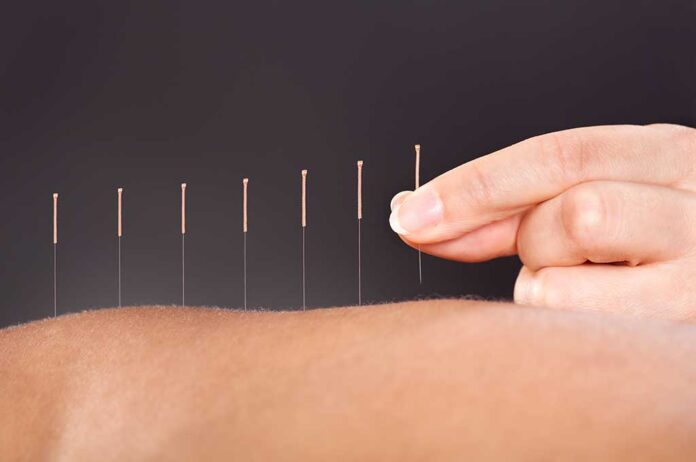In my recent article, “when everything is normal, but you don’t feel right,” I explained how naturopathic philosophies can be applied. In my practice, while I’m using my naturopathic specialty to look deeper for answers, I often recommend acupuncture treatment to achieve relief in the meantime. Patients are often surprised when I suggest acupuncture for their condition and delighted when they have good results. In addition to its most well-known application in painful conditions, I use acupuncture to treat skin, lung, cardiovascular, digestive, reproductive, mood, urinary, and sleep conditions.
Acupuncture has such broad applications because it is a vital part of a complete medical system. This system included acupuncture, herbal medicine, dietary therapy and other modalities and was used to treat the entire body. While advancing medical knowledge and technology provided us with more treatment options, this system, which developed over thousands of years, remained effective. In that regard, it’s no exaggeration to say that we can treat anything with acupuncture.
Even in the category of pain, though, there are some types of pain you might not think to treat with acupuncture. Painful nerve conditions, including sciatica, peripheral neuropathies and even shingles, often respond well to treatment with acupuncture. We can also treat painful internal conditions such as endometriosis, IBS, and headaches, including migraines.
Many people don’t think of acupuncture for digestive symptoms, but I find acupuncture can be very helpful with diarrhea, constipation, heartburn and nausea in addition to IBS. Other internal conditions that can be helped by acupuncture include asthma, allergies and hypertension. It is important to monitor conditions for which you are medicated while pursuing acupuncture treatment. For example, medication for high blood pressure may need to be adjusted because of the further reduction caused by acupuncture treatment.
One of my favorite conditions to treat with acupuncture is anxiety. Acupuncture usually provides some immediate relaxation and calming of anxiety, but the effects also build and last between treatments. While I typically recommend several treatments to new patients so that we can get a good idea of how the treatment is working, my most memorable cases are those with significant relief achieved after the first treatment. I have had many patients report significant relief after a single acupuncture treatment.
In certain conditions, to prevent complications or speed recovery, herbal or prescription antimicrobial treatments may be recommended instead of or in addition to acupuncture treatment. In fact, acupuncture alone is necessarily the right treatment for any given condition. Classical Chinese Medicine included herbal medicine, dietary therapy, topical applications, exercises like tai chi and qigong and other manual therapies. Some conditions may respond better or more quickly to other therapies. As both a naturopathic physician and acupuncturist, I utilize all of these tools to help patients re-establish their health. If you haven’t considered acupuncture previously, schedule a consultation to learn more or come in a treatment.























